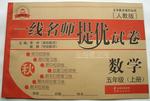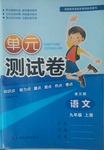题目内容
The iPhone, the iPad: each of Apple’s products sounds cool and has become a fad (一度时髦的风尚). Apple has cleverly taken advantage of the power of the letter “i” — and many other brands are following suit. The BBC’s iPlayer — which allows Web users to watch TV programs on the Internet — adopted the title in 2008. A lovely bear — popular in the US and the UK — that plays music and video is called “iTeddy”. A slimmed-down version of The Independent newspaper was launched last week under the name “i”.
In general, single-letter prefixes have been popular since the 1990s, when terms such as e-mail and e-commerce first came into use.
Most “i” products are aimed at young people and considering the major readers of The Independent’s “i”, it’s no surprise that they’ve selected this fashionable name.
But it’s hard to see what’s so special about the letter “i”. Why not use “a”, “b”, or “c” instead? According to Tony Thorne, former head of the Language Center at King’s College London, “i” works because its meaning has become ambiguous. When Apple uses “i”, no one knows whether it means Internet, information, individual or interactive, Thorne told BBCMagazines. “Even when Apple created the iPod, it seems it didn’t have one clear definition,” he says.
“However, thanks to Apple, the term is now associated with portability (轻便).” Adds Thorne.
Clearly the letter “i” also agrees with the idea that the Western world is centered on the individual. Each person believes they have their own needs, and we love personalized products for this reason.
Along with “Google” and “blog”, readers of BBCMagazines voted “i” as one of the top 20 words that have come to define the last decade.
But as history shows, people grow tired of fads. From the 1900s to 1990s, products with “2000” in their names became fashionable as the year was associated with all things advanced and modern. However, as we entered the new century, the trend unavoidably disappeared.
1.People use iPlayer to _________.
A.listen to music B.make a call C.read newspapers D.watch TV programs online
2.We can infer that The Independent’s “i” is aimed at _________.
A.engineers B.old readers C.fashionable women D. young readers
3.Nowadays, the “i” term often reminds people of the products which are _________.
A.environmentally friendly B.easy to carry C.advanced D.recyclable
4.The writer suggests that _________.
A.“i” products are often of high quality
B.iTeddy is a living bear
C.the popularity of “i” products may not last long
D.the letter “b” replaces the letter “i” to name the products
1.D
2.D
3.B
4.C
【解析】
试题分析:本文主要讲述的是“I”这个单词在英语的广泛使用,并分析了原因和前景。
1.细节题。根据第一段3,4行The BBC’s iPlayer — which allows Web users to watch TV programs on the Internet — adopted the title in 2008.说明人们用这种工具在网上看电视节目,故D正确。
2.细节题。根据文章第三段Most “i” products are aimed at young people and considering the major readers of The Independent’s “i”, it’s no surprise that they’ve selected this fashionable name.说明这样的产品主要的目标人群就是年轻人,故D正确。
3.细节题。根据文章倒数第三段“However, thanks to Apple, the term is now associated with portability (轻便).” Adds Thorne.说明这样的说法是与轻便有关,故B正确。
4.推理题。根据文章最后一段But as history shows, people grow tired of fads. From the 1900s to 1990s, products with “2000” in their names became fashionable as the year was associated with all things advanced and modern. However, as we entered the new century, the trend unavoidably disappeared.说明人们对于时尚的品味是不断变化的,故也许不久以后,人们就会不再使用I这个字了。故C正确。
考点:考查文化类短文阅读
点评:本文主要讲述了I这个字母的流行的原因,本文主旨鲜明,做题时要注意文章的首段和每一段的首句或尾句,因为它们往往就是文章的主题句。阅读中要注意要点之间的关系。然后带着问题,再读全文,找出答题所需要的依据,完成阅读任务。

 一线名师提优试卷系列答案
一线名师提优试卷系列答案 阳光试卷单元测试卷系列答案
阳光试卷单元测试卷系列答案